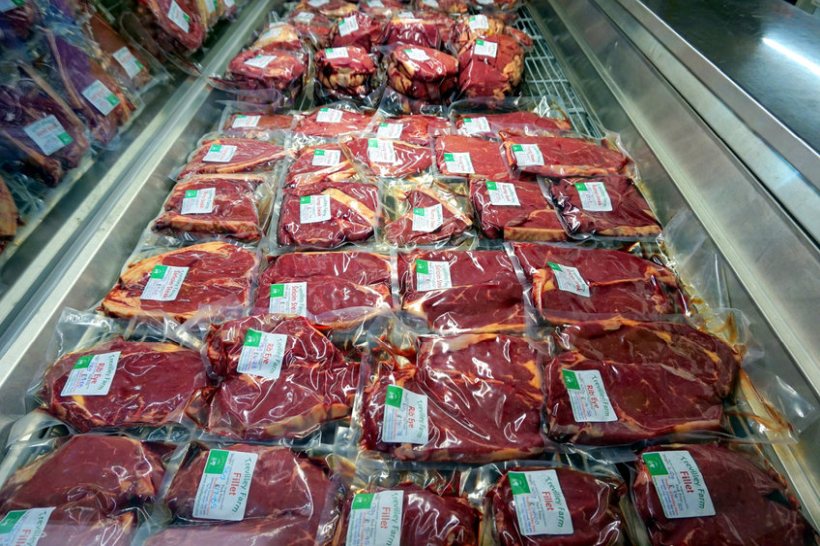
Sales of more expensive premium red meat products have seen a surge in the last 12 months, as quality becomes ever more important to British consumers.
Premium private label sales have been well supported by consumers, new Kantar figures show, with more people reaching for these products than the previous year.
The Covid-19 pandemic has spurred on retail meat sales, with numerous categories seeing growth since the start of the crisis last year.
Although there’s been variation by red meat type, premium private label red meat has seen a 15% lift in spend, with a 12% growth in volume overall.
This growth rate means that premium private label meat is growing faster than other tiers.
Premium private label products are often more expensive than standard. For example, premium beef steaks are 50% more expensive on average per kg than its standard equivalent.
But despite large year-on-year growth, premium private label remains a small proportion of the total red meat market at 8.8%, with standard private label continuing to make up the majority of sales.
Looking at specific proteins, both beef (+14% in volume) and processed pork (+10% in volume) have been key contributors to premium private label’s positive performance.
For beef, an uplift in purchases of premium steaks and mince have driven this growth. Latest statistics show that consumers have been more likely to choose steaks as a treat occasion over the past year.
For pork, premium sliced ham has been a standout product over the past year. In-home lunches have seen a large increase in occasion, with many of us working from home and opting for sandwiches more regularly.
According to the AHDB's Consumer Tracker, 17% of meat shoppers say that quality has become more important to them when buying meat compared to before the pandemic, whereas only 5% say it’s less important.
The same survey also showed that, when buying premium beef and pork, meat shoppers say that British origin is the most important factor, at 45% and 40% respectively.
This is a statistically significant increase when compared to pre-pandemic, back in February 2020, which highlights the heightened support for British farming during the pandemic.
Bronwyn Magee, AHDB trainee analyst, said that higher welfare aspects also mattered to British shoppers.
"IGD research supports the notion that shoppers make the link between factors such as this and quality," she said.
"With data showing that 27% of shoppers use ethical factors to help define a product as higher quality, while 26% also consider environmental factors (IGD Quality in Focus, 2019)."
"Looking at AHDB's previous research, taste is one of the most important factors consumers consider.
"As such, shoppers may look to trade up to premium products in store or online, on the basis that these products may taste better or be more enjoyable," Ms Magee said.
"Therefore, appearance of the meat, as well as taste cues on pack, are important considerations."
